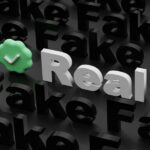Image Commercially Licensed from: DepositPhotos
In the intricate web of industries ranging from food and beverages to pharmaceuticals, maintaining the integrity of product packaging stands as a linchpin for ensuring consumer safety and product quality. This crucial task is entrusted to package integrity testing equipment, sophisticated tools designed to detect and prevent defects that might compromise the contents within. This article explores the world of package integrity testing, shedding light on its importance, the standards governing the process, and the various types of equipment used.
Ensuring Product Freshness and Quality
At the heart of package integrity testing is the commitment to preserving product freshness and quality. Be it food sachets, cosmetic bottles, or pharmaceuticals, impeccable packaging is essential for preserving shelf life and maintaining the product’s initial state. Techniques like vacuum and bubble leak testing, aligned with standards such as ASTM F2096, are instrumental in ensuring airtight seals and locating micro leaks that could compromise package integrity.
Leak detection methods have evolved to offer non-destructive means of assessing seal strength, directly impacting a product’s shelf life. This is not only critical for customer satisfaction but also imperative for regulatory compliance. Through adherence to standards like ASTM D6653 and ASTM F2096, manufacturers can systematically standardize seal strength measurements and detect and classify leaks, respectively, ensuring that the product remains as fresh as the day it was packaged.
Identifying and Preventing Contamination
Contamination poses a significant threat to product safety and consumer trust. Packaging, acting as a barrier to microbes, oxygen, and other contaminants, is a critical line of defense. Package integrity testing, particularly through methods like bubble leak testing specified in ASTM F2096, becomes essential in identifying and addressing deficiencies that might allow contaminants to breach the packaging.
In industries where sterility is paramount, such as the medical device sector, package integrity testing transcends brand protection—it becomes a matter of ensuring patient safety. By simulating distribution conditions and conducting accelerated aging tests, manufacturers can validate that packaging defenses remain robust up to the point of use and within the stated shelf life of the product.
Regular testing and vigilant quality control, as emphasized in industry practices, enable the prevention of contamination problems before they escalate, reinforcing the promise of safety and efficacy expected from modern brands.
Types of Package Integrity Testing Equipment
To ensure the safety and longevity of packaged products, a diverse range of package integrity testing equipment is employed. Leak testing equipment, such as Flexpak leak detectors and underwater bubble leak detectors, plays a pivotal role in ensuring airtight seals. These tools are adept at identifying even the smallest of leaks with precision, which is invaluable for maintaining package integrity and preventing contamination.
Seal integrity testing equipment, guided by standards like ASTM F88, measures the strength of seals to ensure they meet specified benchmarks. Combining both leak and seal testing, integrated systems offer a comprehensive approach to evaluating package integrity from multiple angles, leaving no stone unturned before a product reaches the consumer.
Factors to Consider When Choosing Package Integrity Testing Equipment
Selecting the right package integrity testing equipment involves careful consideration of several factors. The testing methodology, sample size, throughput, automation, and integration capabilities are crucial elements in ensuring optimal protection for products throughout their lifecycle.
The choice of testing methodology should align with industry standards, and equipment should be capable of handling varying sample sizes and production volumes. Automation and integration capabilities enhance operational efficiency in fast-paced production environments, reducing human error and ensuring consistency in testing outcomes.
Common Applications of Package Integrity Testing Equipment
In various industries, package integrity testing equipment plays a pivotal role in ensuring product safety and compliance. In the food and beverage sector, it safeguards product quality, extends shelf life, and preserves brand reputation. In the pharmaceutical industry, it ensures compliance with strict standards, protects against biological contamination, and assures product efficacy. For medical devices, package integrity testing is indispensable, offering reliability for life-saving devices and building consumer trust through assured package quality.
Choosing the right package integrity testing equipment is pivotal for maintaining the highest standards in product safety and quality across multiple industries. Whether it’s ensuring the freshness of food and beverages, the efficacy of pharmaceuticals, or the reliability of medical devices, the role of these testing systems cannot be overstated. By investing in appropriate testing solutions, companies can safeguard their products, their customers’ well-being, and, ultimately, their brand’s integrity. The longevity and reputation of products in the market hinge on the robustness of the package integrity testing strategy employed.
Published by: Nelly Chavez
















